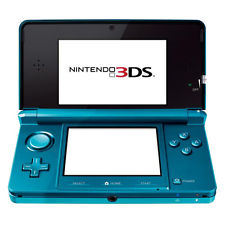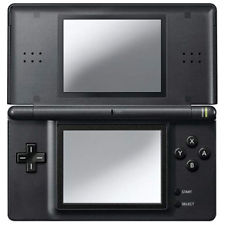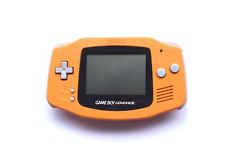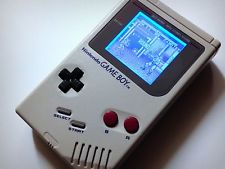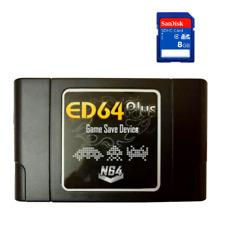|
October 28th, 2012, 02:00 Posted By: wraggster
It isn't unprecedented, exactly, but the announcement made by Nintendo president Satoru Iwata earlier this week concerning the Wii U's pricing was momentous nonetheless. "Rather than determining a price based on its manufacturing cost, we selected one that consumers could consider to be reasonable," he stated during the firm's latest financial briefing - or, in short, Nintendo is set to launch its new console at a price lower than its cost of manufacturing.
"Today's market, flooded with smartphones, tablets and other perfectly game-capable devices, simply won't support a profit-making, high cost console"
This is a compelling sign of just how difficult market conditions have become for Nintendo. For years, the company has been pulling off a pretty remarkable trick - competing with bigger rivals like Microsoft and Sony, and even beating them, all while refusing to be drawn into the business model of selling hardware below cost. Other hardware manufacturers routinely launch their hardware at loss-making price points, recouping investment through software sales and betting that manufacturing costs will fall faster than price cuts (not a bet that always pays off, at least not at first). Nintendo does no such thing. It makes a profit when you buy a console, and makes more profit every time you buy a game.
Or at least, that's how things used to be. The first big crack to appear in Nintendo's dam came with the price cut to the 3DS in early 2011, which brought the system's price tag below its cost of manufacture only a matter of a few months after launch. By all accounts, Nintendo's high unit sales and talent for dropping manufacturing costs has now reined this situation in, with the 3DS back at or below break-even, but a precedent had been set. Now the Wii U will break with Nintendo's traditional business model entirely, launching from the outset at a loss-making price point.
I have no doubt that such a move was debated hotly in Nintendo's Kyoto boardrooms, but in the end, it's reality that has won out. Today's market, flooded with smartphones, tablets and other perfectly game-capable devices, simply won't support a profit-making, high cost console - and some of Nintendo's critics would do well to recall that Sony and Microsoft will also be announcing deeply loss-making next generation hardware in due course. This is how consoles are sold; the wonder, in some ways, is that Nintendo has held on to its ability to sell at above cost for such a long time.
"People have been buying up the Yen in bulk, driving up value relative to other currencies, and making life very hard for export-driven companies like Nintendo and Sony"
It's worth thinking about the factors which have driven Nintendo's decision - which have, in effect, backed the company into such a corner. The wider market picture is definitely a part of it; this Christmas, Nintendo will not just be competing with rival game systems, but also with iOS, Android and Windows Phone / Windows 8 devices aplenty. Christmas lists (and birthday lists, and shopping lists of all kinds throughout the whole year) only have space for so many devices. Nintendo has always had a wide view of its competition; many years ago, it already understood that it wasn't necessarily competing with Sony so much as it was competing with "watching TV" or "playing board games" or "going out". Now it understands that it must jostle for mindshare with devices like the iPad, the Nexus 7 or the Galaxy Note. They don't do the same things as a Wii U, of course, but Nintendo of all companies can see that they're still powerful competition. Moreover, since Nintendo's software prices remain very high compared to the low-cost or free-to-play business models which dominate on phones and tablets, device pricing is a vital weapon in this battle.
That's the factor we're all going to talk about, inevitably, because Nintendo's newly aggressive stance on pricing matches up with an ongoing industry narrative - the squeezing of dedicated consoles by powerful multifunction devices. However, we should be careful not to overstate that side of the argument, because the fact is that while Nintendo is undoubtedly feeling heat from the changing market, it's only a mild glow of warmth compared to the sweltering, searing heat wave that is the perilous state of the Japanese export economy.
Oh god, you think, this sounds dull. It is - far more dull than an exciting narrative about a former reliable pillar of the industry being felled by advancing technology and market change. It has the benefit, however, of being quantifiable. Nintendo reckons it lost ¥23.2 billion due to Yen exchange rate problems over the past six months - that's about $290 million. That figure only hints, however, at the sheer lack of options which Nintendo has on pricing due to the strong Yen. On its balance sheet, the value of every Euro or Pound the company earns is only about 60 per cent of what it was a few short years ago; the value of every dollar has pretty much halved. Local consumers can't see the broader picture (our spending power has remained stagnant or even fallen during this period), but looked at globally - as Nintendo must - a console priced at $300 back in 2007 now effectively earns the company only $150.
The reasons for this are really dull, unless international finance interests you to an unnatural degree (guilty as charged - I'm just as good at parties as you might expect), but in a nutshell: the world is in recession, the USA and Europe look like pretty risky places to keep your investments, but Japan, due in part to an unusual arrangement where the country's (massive) debts are mostly owed to its own people rather than to other nations or international banks, looks like a nice safe option. As a result, people have been buying up the Yen in bulk, driving up its value relative to other currencies, and making life very, very hard for export-driven companies like Nintendo and Sony.
I'm going to go out on a limb here, because it's a big "what-if" scenario - but I think that if the Yen hadn't soared in value over the past four years or so, Nintendo would probably be breaking even on the Wii U price point, and we wouldn't even be having this discussion. If anything, we'd be having a very different discussion - marvelling at Nintendo's extraordinary ability to cling on to solid profit margins and audience share even in spite of such a challenging market. Take the Yen value out of the equation, in other words, and the assessment of Nintendo's current situation would be completely reversed - from "everything is going wrong!" to "my, aren't they resilient!".
"Nintendo's crisis response is its competitors' default setting"
None of this is to say that Nintendo doesn't face an enormous challenge in terms of staying relevant in a market where things like iOS and Android exist. However, consider the company's track record - specifically, the extraordinary power of its IP. Nintendo is arguably the world's second most valuable repository of universally recognisable "family" IP, after Disney, and that IP has allowed it to maintain enviable profit margins over the years even despite strong competition from much larger companies like Sony. Now, in the face of the toughest economic test Japan has ever faced (history, I suspect, will record this period as being more economically damaging than even the Asian Financial Crisis and the bursting of the property bubble in the early 1990s) and a powerful challenge to the very concept of the dedicated games console, Nintendo has been forced to.... do exactly what Sony, Microsoft et al have been doing all along. Its crisis response is its competitors' default setting. Even now, even in the face of such challenges, I'm not sure any wise industry insider or analyst would want to bet against Nintendo.
http://www.gamesindustry.biz/article...hest-challenge
For more information and downloads, click here!
 There are 0 comments - Join In and Discuss Here There are 0 comments - Join In and Discuss Here
|
|
 NES
NES





